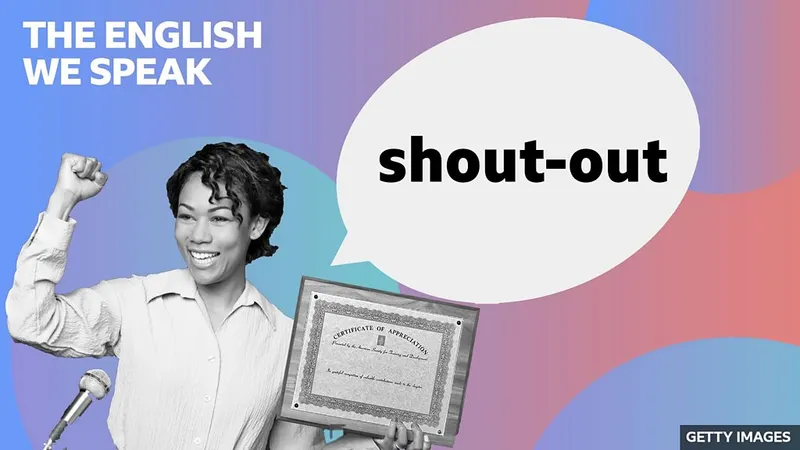Neil Welcome to The English We Speak, with me, Neil.
Feifei And me, Feifei.
Neil We have an expression which means ‘say a person or thing’s name to praise or thank them publicly’ – it’s ‘shout-out’.
Feifei ‘Shout-out’. What’s the context, Neil?
Neil Well, I’ve had a really tough year, but I want to give a shout-out to my parents for all the support they’ve given me with my new home. It means I’m praising them publicly.
Feifei That’s a great example of a shout-out. It’s a way of saying ‘thank you’ to someone. Your parents deserve your thanks for being amazing when they helped you decorate your house.
Neil Last week I called up my local radio station to give a shout-out to the people in my local area who helped me to repair my garden fence.
Feifei Yes. I know your fence got damaged in the storm. Did you neighbours help you with it?
Neil Yes, which is why I gave them a shout-out. Let’s hear some more examples.
Examples My teacher gave me a shout-out in the classroom because I got a high mark in the exam.
I want to give a shout-out to the volunteers who raised over £1,000 for the children’s charity. We will use the money to take the children on a day out in London.
My uncle gave a big shout-out on the radio to the doctor who saved my aunt’s life when she choked on her food in the restaurant.
Feifei You’re listening to The English We Speak from BBC Learning English, and we are learning ‘shout-out’, which means ‘mention a person’s name to express praise or thank them’.
Neil Yes, and I said earlier that it’s commonly done publicly – or in front a group of people.
Feifei It’s often used in award ceremonies. People mention someone’s name to give thanks for helping them win an award.
Neil Exactly. We often we often say, ‘a big shout-out’, and it’s used with the verb ‘give’ – ‘give a shout-out’.
Feifei I hope you’ve learned how to use shout-out today. See you next time!
Neil Bye!
